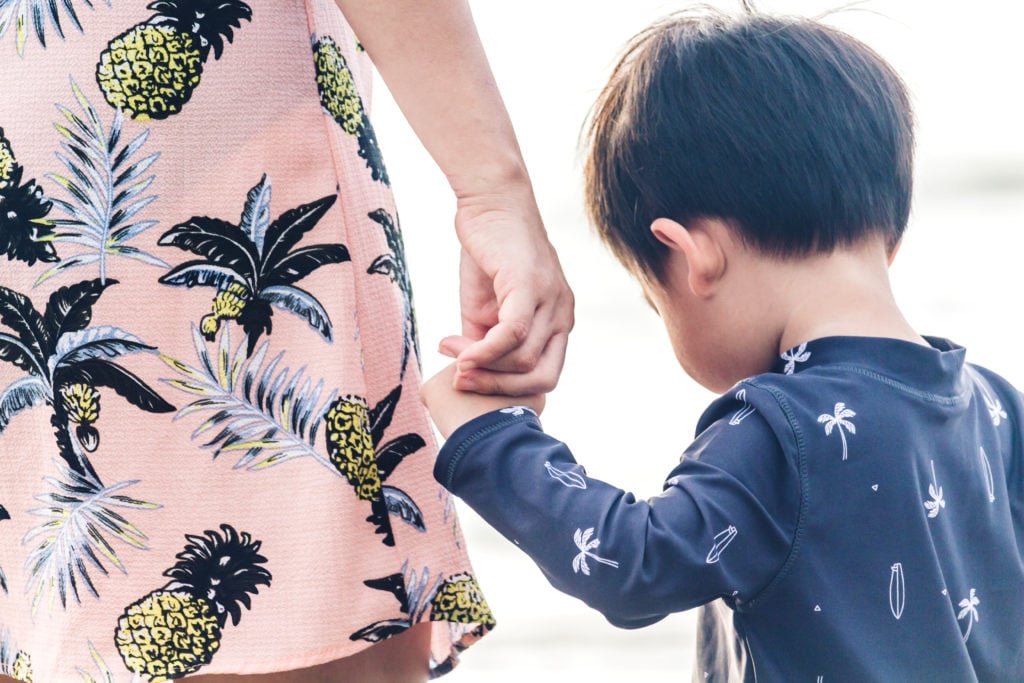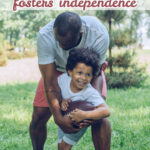How Does Attachment Parenting Foster Independence?
Attachment parenting is an intuitive way to raise children who are secure enough to develop their own independence.
This concept is confusing to many parents, because it can seem a little counterintuitive. Maybe you picture the child of attachment parents to be clingy and spoiled.
And honestly it does feel that way in the early weeks, when you cater to an infant’s every want and need. But by meeting these needs early on, you set your child up for a lifetime of independence.

Attachment parenting, according to API, is an approach to childrearing that promotes a secure attachment bond between parents and their children. “Attachment” is a scientific term for the emotional bond in a relationship. The attachment quality that forms between parents and children is learned from the relational patterns with caregivers from birth. This correlates with how a child perceives – and ultimately is able to experience – relationships.
Secure Attachment Benefits
Attachment parenting is correlated with lifelong effects. And its impact is often much more profound than people understand. A person with a secure attachment is generally able to respond to stress in healthy ways. They are also able to establish more meaningful and close relationships more often.
A person with an insecure attachment style may be more susceptible to stress and less healthy relationships. And a greater number of insecurely attached individuals are at risk for more serious mental health concerns such as depression and anxiety.
Attachment Parenting Real Life Examples
I can’t speak for AP parents everywhere, but I can offer my perspective from raising two children this way.
Breastfeeding
By breastfeeding, children learn that we can trust our bodies and nature to provide for us. They also benefit from the bond we shared and knowing their needs were always met.
Gentle Discipline
By practicing gentle discipline and teaching respect, they learns that they are worthy of the respect of others. Logical consequences teach responsibility for their own actions.
Co-sleeping
When we co-sleep and respond to his sleep needs with sensitivity, our son learns that we are there for him whenever he needs us. This gives him the freedom to take risks and be independent.
Consistent and Loving Care
When our son sees that we regularly respond to his needs, he learns that he is worth hearing, worth listening to, and valued in general.
Natural Learning
When he learns through natural processes, he realizes the power of following his instincts and reaching out to the world around him. Again, he assumes responsibility for his education and learns about his personal strengths.
Holistic Health Practices
When we use holistic health practices in addition to Western medicine, our son learns that he always has options. And that the choices that are best for us are not always the same ones that the majority appear to make.
Early Security for Later Independence
As Dr. Sears explains about attachment parenting, “Because the connected child trusts his parents to help him feel safe, he is more likely to feel secure exploring his environment. In fact, studies have shown that toddlers who have a secure attachment to their mother tend to adapt easier to new play situations and play more independently than less attached toddlers.”
When we remove unrealistic expectations of our children and replace that with the nurturing feelings and instincts of parenthood, children feel secure, safe, and confident.
I know attachment parenting is not for everyone. We came upon it by simply following our instincts as parents. And although we have a long road of parenting ahead of us, I feel confident that gently focusing on love, respect, and compassion could not possibly be wrong.

